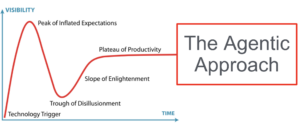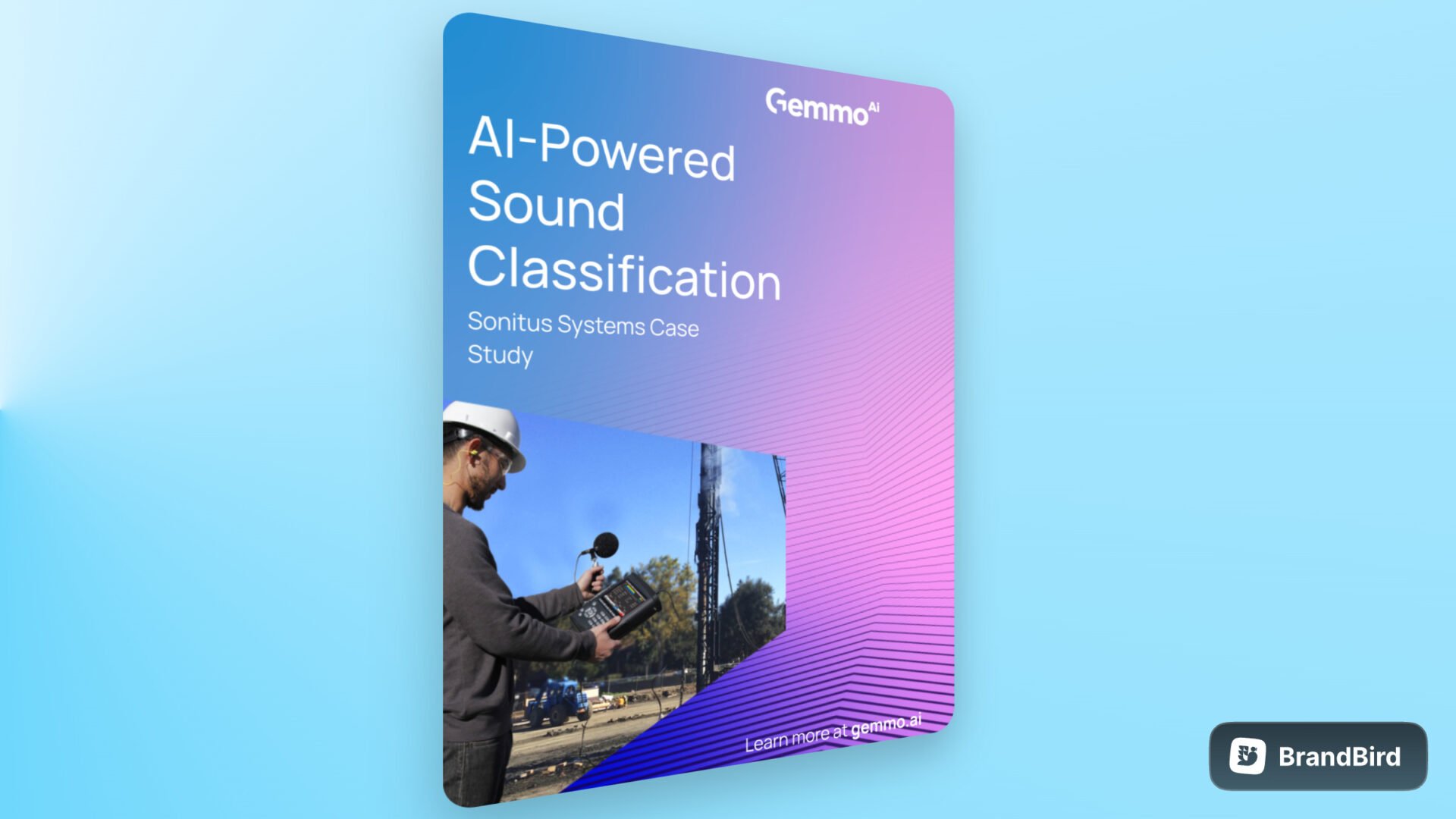Human Amplification with Agentic AI
Agentic AI represents human amplification and the growth of productivity in business. AI agents are key for business to survive and thrive....

In a world increasingly driven by AI, many businesses are looking for the next step in automation and productivity and autonomous AI agents, represent that next leap forward.
Understanding Agentic AI: The Shift from AI Assistants to Autonomous Agents
Agentic AI refers to artificial intelligence systems that can make decisions, plan actions, and execute tasks autonomously. Agentic AI systems go beyond the reactive capabilities of traditional AI assistants, enabling businesses to automate complex tasks, reduce manual input, and enhance profitability.
Recent articles, including one in the Financial Times, highlight how major tech players like Microsoft, Salesforce, and Workday are investing heavily in AI agents to boost productivity for corporate clients. But how can businesses cut through the AI hype to unlock true ROI from these systems?
While traditional AI assistants are limited to responding to inputs, Agentic AI takes things further by breaking down complex tasks into smaller, manageable steps—often with minimal human intervention. In essence, they amplify human capability by taking over routine tasks, allowing people to focus on more strategic initiatives.
This shift is already being embraced by tech giants, with Salesforce and Workday integrating autonomous AI agents into their business models to handle a wide range of tasks like data analysis and customer service. Oracle, too, is embedding AI agents into its Fusion Applications, demonstrating how these systems can integrate into enterprise workflows to manage operations like shift scheduling, employee onboarding, and customer support.
ROI of AI Agents: More Than Just Cost-Saving
While much of the initial excitement around AI focuses on cost-saving, the real opportunity lies in its ability to drive long-term profit and growth. AI agents can help businesses at various stages—from basic automation to full deployment of revenue-generating agents. These systems deliver value not only by reducing manual workflows but also by enabling new business opportunities.
Here’s how AI agents can deliver ROI:
- Reduction in Manual Tasks
AI agents are designed to handle repetitive, data-driven tasks such as automating customer service responses, managing data entry, and generating reports. For instance, many organizations using AI in customer support have seen significant savings. Zendesk reported that AI can help deflect up to 60% of ticket volume by automating common responses, without sacrificing service quality. Additionally, businesses have experienced cost reductions of up to 30% due to faster resolution times and fewer escalations. Tools like Zendesk’s AI bots and Dialpad streamline these tasks, enabling employees to focus on more strategic work and enhancing overall productivity.
- Enhanced Decision-Making
AI agents elevate decision-making by offering real-time, data-driven insights. For example, Oracle has integrated AI agents into their HR and financial management systems, allowing businesses to streamline processes like hiring and financial forecasting. This has had a direct impact on the bottom line by optimising operational efficiency across departments. Similarly, companies using Five9’s Agent Assist have reported a 27% reduction in average handle time (AHT) in contact centres, which significantly boosts productivity by automating call transcriptions and summarisations.
- Scalability
A key benefit of Agentic AI is its scalability. AI agents can be implemented across various departments—whether in customer service, HR, or logistics—without needing additional headcount. For instance, Workday’s AI agents automate HR functions like expense management and succession planning, freeing up valuable time while ensuring organisations can handle larger workloads. Meanwhile, Salesforce’s Agentforce has scaled to support large enterprises such as Disney and ADP, handling millions of interactions without requiring additional staff.
- Faster Response and Adaptation
AI agents operate autonomously and adapt in real-time to dynamic environments, making them ideal for industries where quick decision-making is vital. Companies like Salesforce and Microsoft are already integrating these fast-response agents into their core offerings. Salesforce, for example, deploys AI agents to autonomously handle customer service inquiries and automate workflows, allowing human operators to step in only when more complex issues arise. These agents identify patterns in data and can act on them in real-time. For instance, if an AI agent detects a recurring issue in customer service requests, it can flag it, generate a solution, and notify the appropriate team for follow-up.
This real-time adaptability makes AI agents particularly valuable in industries where response time is crucial for customer satisfaction and loyalty. AI agents can preemptively address problems, minimising delays between issue detection and resolution—a key factor in enhancing customer experience and operational efficiency.
The Rise of AI Agents in Mainstream Technology
The race to bring Agentic AI to the masses is intensifying as major tech players like OpenAI, Google, and Apple are developing AI-powered assistants that can reason and complete complex tasks for people. As noted in a recent Financial Times article, OpenAI is betting that 2025 will be the year that AI agents “hit the mainstream”, enabling users to interact with AI as naturally as they would with another human being(Enterprise Times).

The Gartner Hype Cycle (depicted below) helps illustrate this transition, showing how new technologies—like Agentic AI—move through phases of inflated expectations, and disillusionment, and eventually reach a plateau of productivity. We are now on the verge of this productivity phase, where Agentic AI will begin delivering tangible business value.
At OpenAI’s recent developer event, they revealed new model capabilities, including GPT-4o’s advanced voice features, which allow AI to understand voice commands and engage in real-time speech. This level of innovation is set to bring AI agents into everyday scenarios, such as placing orders on behalf of users or handling customer service tasks autonomously, making them an integral part of high-value, labour-intensive processes
Moving Beyond the Hype: How to Approach AI Agents for Growth
For businesses looking to go beyond the AI hype, it’s essential to approach Agentic AI strategically. Here’s a roadmap to ensure you unlock real value from these systems:
- Start with a Pilot: Begin by identifying areas with high manual activity and measurable impact. For example, tasks like diary note integration or customer service interactions are ideal starting points.
- Measure and Optimise: It’s crucial to measure the impact of AI agents on both qualitative and quantitative metrics. By continuously capturing data on performance—like hours saved or costs reduced—you can understand where agents are driving value and where they need to be optimised.
- Invest in AI Training: Success with AI agents isn’t just about deploying the technology—it’s also about training staff to understand and leverage AI for maximum impact. This ensures that teams can effectively use these tools to drive both efficiency and innovation.
- Aim for Long-Term Growth: While cost savings are an immediate benefit, the long-term potential lies in how AI agents can help businesses grow. Whether it’s creating new revenue streams, improving customer experience, or optimising operations, the ultimate goal is to enable sustainable growth through intelligent automation.
The Bottom Line: The Future of Work = Agentic AI
The real potential of Agentic AI lies in its ability to transform businesses by not only saving costs but also driving new growth opportunities. As highlighted in the Financial Times article, businesses are already seeing the benefits of deploying AI agents to improve efficiency, but the true advantage will come from how well these systems are integrated into business strategy.
By moving beyond the AI hype and focusing on measurable ROI, businesses can harness the full potential of Agentic AI to enhance productivity, streamline operations, and unlock new avenues for profit and growth.
At Gemmo AI, we help businesses assess their current workflows, identify opportunities for AI integration, and guide them through the implementation process—ensuring AI solutions are scalable, efficient, and ready to deliver results from day one. Now is the time to take action and embrace the future of work with Agentic AI.
How Gemmo Implements AI Agents: Walking the AI Journey Together
At Gemmo AI, we take a structured approach to help businesses implement AI agents, ensuring that the solutions deliver maximum ROI while scaling efficiently. Our process is designed to address specific business needs by walking clients through three critical phases:
Phase 1: AI Gap Analysis
The first step in deploying AI agents is to thoroughly understand the client’s current capabilities and define the problem AI will solve. Through our AI Gap Analysis, we:
- Identify AI Goals: We work closely with you to clarify your objectives—what are the key outcomes you want AI to drive? This helps set a clear direction for your AI journey.
- Assess Current Capabilities: We evaluate your existing AI infrastructure, technology, and team expertise to understand what is already in place and where the gaps are.
- Gap Identification: This step pinpoints the discrepancies between your current capabilities and your desired AI goals, setting a clear action plan for bridging these gaps.
This stage is all about formulating a hypothesis about how AI can solve specific challenges and validating those ideas within a short timeframe.
Phase 2: AI Technical Feasibility
Once the gaps have been identified, we focus on the technical feasibility of deploying AI agents. In this phase, we:
- Define the Final AI Architecture: We design the architecture of your AI solution, ensuring it aligns with your business needs and can integrate seamlessly into existing workflows.
- Pre-production Implementation: Our team implements pre-production models to validate the feasibility of the solution, ensuring that it can operate effectively in your specific business context.
This phase focuses on setting up the foundational structure and testing the AI agents in controlled environments to ensure their effectiveness before full deployment.
Phase 3: AI R&D and Deployment
The final phase involves full-scale deployment of the AI agents, ensuring they are ready to handle real-world scenarios:
- Deploy into Existing Products: We deploy the AI agents into your current product or service offerings, ensuring they integrate smoothly and deliver the desired outcomes.
- Beta Testing and Scalability: Before going live on a large scale, we conduct extensive beta testing to validate the solution’s scalability. This is particularly important to ensure that the AI agents can manage increasing workloads without degradation in performance.
Through these three phases, Gemmo AI ensures that businesses not only implement AI solutions that work but also that they scale efficiently and deliver measurable ROI from day one.



